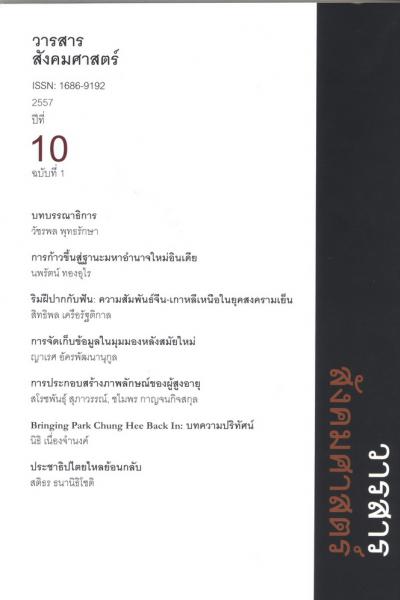Lips and Teeth: Sino-North Korean Relations in the Cold War (1949 – 1992)
Main Article Content
Abstract
During the Cold War, Sino-North Korean relations were often
described by Chinese leaders as "lips and teeth", showing the sealed-
in-blood friendship between the two countries which fought the
American imperialists together in the Korean War (1950-1953). As a
matter of fact, the so-called lips and teeth relations were mere
rhetoric. This article shows that, in the 1960s, China used the 1961
alliance treaty with North Korea to contain the American and Soviet
influences on the Korean Peninsula. As a result, China made a
concession to North Korea in the case of border demarcation.
However, the process of Sino-American normalization of relations
against the Soviet Union in the 1970s made China less receptive to
North Korean demands, including its refusal to support Kim Il Sung's
plan to launch the second Korean War in 1975. In addition, Deng
Xiaoping's institution of reform and opening-up policy in the late
1970s led to the rise of economic ties between China and South
Korea. By 1989, the Sino-Soviet normalization made North Korea less
strategically important in Chinese eyes, which in turn resulted in the
establishment of Sino-South Korean diplomatic relations in 1992 and
the de facto demise of the Sino-North Korean alliance.


